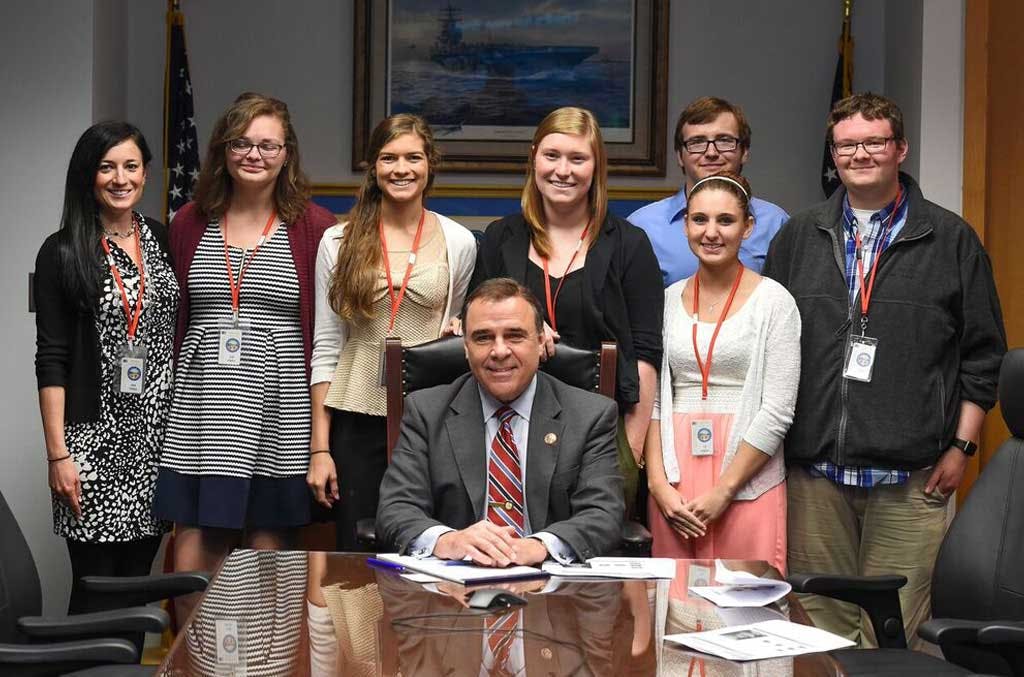Group Presents to Ohio Legislator and at Two Student-Faculty Research Forums
A Wilmington College class studying research methods and inferential statistics presented results of their study that examined attitudes toward marijuana legislation in Ohio at the Ohio Statehouse in April.
(PICTURED) From the left are, Dr. Audrey Wagstaff, Lauren Brickey, Taylor Scott, Lydia Wolcott, Kayla Love, Dylan Sander and Blake Carter, with Rep. Kirk Schuring (R-District 48). Photo courtesy of the Office of the House Speaker
Also, they gave their presentation, “Up in Smoke”: Shaping Attitudes Toward Legalizing Marijuana in Ohio, at Walsh University’s “All Politics Is Local” conference April and won the Best of Class award for the social sciences at Wilmington College’s Student-Faculty Research Forum April 28.
Also, on April 28, they visited the Statehouse in Columbus, where the class presented their findings to Rep. Kirk Schuring, who has headed the legislature’s Medical Marijuana Task Force, and two aides to Cliff Rosenberger, speaker of the House.'
The statistical research was directed by Audrey Wagstaff, Ph.D., associate professor of social science at WC. Student authors are Theresa Knopf, Taylor Scott, Kayla Love, Morgan Combs, Lydia Wolcott, Katelyn Straley, Blake Carter, Dylan Sander, Lauren Brickey, Hayley Zornes, Carter Semenchuk, Kelsey Stone, Blair King and Jamika Frazier.
Wagstaff explained their study uses the Theory of Planned Behavior “to help explore the theoretical underpinnings” for why marijuana legislation (Issue 3) failed to pass in Ohio last November, as well as to predict how young voters might react to proposed future legislation.
Their research indicated an unclear relationship between support for legalization and actually voting for it. Indeed, they cited such characteristics as political ideology, religious beliefs, past experiences with marijuana and previous behaviors — like voting for or against Issue 3 — as affecting future votes on the issue.
They also have been asked tentatively to present their findings to the Mental Health and Recovery Services Board of Clinton and Warren Counties, and the group has submitted the research for consideration to present at the Ohio Communication Association annual conference in October.
